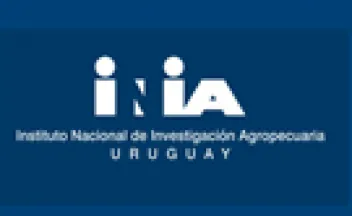Instituto Nacional de Investigación Agropecuaria
Survey of Uruguayan freshwater water quality for crop irrigation: abstract.

The increase in global demand for food and biofuels, has led to an high demand for agricultural products. That situation implies an intensification of production systems, and develop strategies to ensure stability against drought, and moreover a better levels of productivity. Objectives that could be achieved with the irrigation of crops; however, it can promote negative impacts due to cumulative effects on soil quality, which depend on the chemical composition of the water used.
Survey of Uruguayan freshwater water quality for crop irrigation:abstract.

The increase in global demand for food and biofuels, has led to an high demand for agricultural products. That situation implies an intensification of production systems, and develop strategies to ensure stability against drought, and moreover a better levels of productivity. Objectives that could be achieved with the irrigation of crops; however, it can promote negative impacts due to cumulative effects on soil quality, which depend on the chemical composition of the water used.
Irrigation management and greenhouse gas emissions in Uruguayan rice production systems: abstract.

Environmental impact and sustainability of agricultural systems and management practices leading to climate change mitigation are one of the most relevant issues to agricultural production nowadays. Mitigation is the process of reducing emissions or enhancing sinks of greenhouse gases (GHG), to limit global warming potential and restrict future climate change. The most relevant GHG are Carbon dioxide (CO2), Methane (CH4) and Nitrous Oxide (N2O). The steady increase of its concentrations in the atmosphere over several decades has led to enhance global warming.
Irrigation management and greenhouse gas emissions in Uruguayan rice production systems:abstract.

Environmental impact and sustainability of agricultural systems and management practices leading to climate change mitigation are one of the most relevant issues to agricultural production nowadays. Mitigation is the process of reducing emissions or enhancing sinks of greenhouse gases (GHG), to limit global warming potential and restrict future climate change. The most relevant GHG are Carbon dioxide (CO2), Methane (CH4) and Nitrous Oxide (N2O). The steady increase of its concentrations in the atmosphere over several decades has led to enhance global warming.
La mancha bacteriana de los frutales de hueso y del almendro (Xanthomonas arboricola pv. pruni) en España y Sudamérica.

La mancha bacteriana de los frutales de hueso. y del almendro, causada por Xanthomonas arborico/a pv. pruni (sin. Xanthomonas campestris pv. prum), está considerada en la actualidad como la bacteriosis más grave de los frutales de hueso. Los síntomas consisten en manchas en hojas, chancros en ramas, lesiones en frutos que disminuyen su valor comercial y, además, los árboles afectados pueden sufrir severas .defoliaciones que los debilitan disminuyendo progresivamente su productividad (Fotos 1 a 3). Los hospedadores naturales de X. arborico/a pv.
Potential yield of contrasting soybean maturity groups in Southern Uruguayan conditions: abstract.

Soybean potential yield (Glycine max (L.) Merr.) is determined by temperature, radiation, photoperiod and genotype in every location. The variability of potential yields is strongly associated with changes in available solar radiation through years. Selection of management practices that lead to maintaining high yields are: genotype, sowing date and row spacing. Sowing date enables coupling solar radiation offer with the crop stages were yield is defined. Furthermore, potential yield for every environment depends on genotype.
